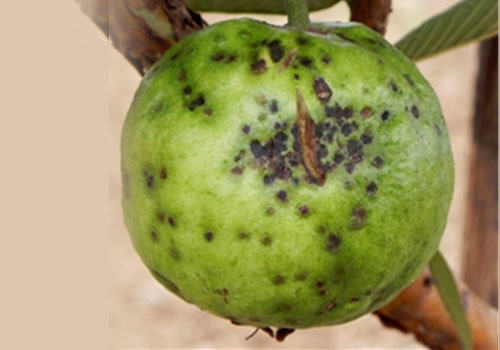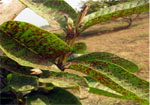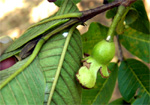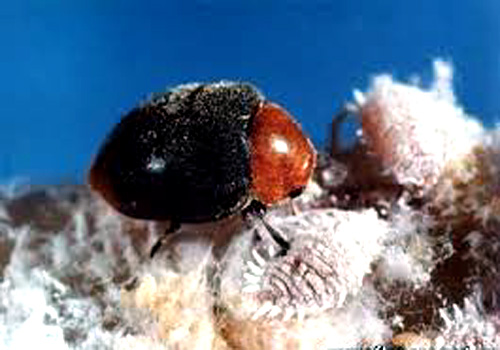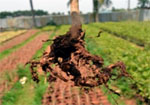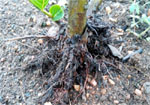Guava - Pest management
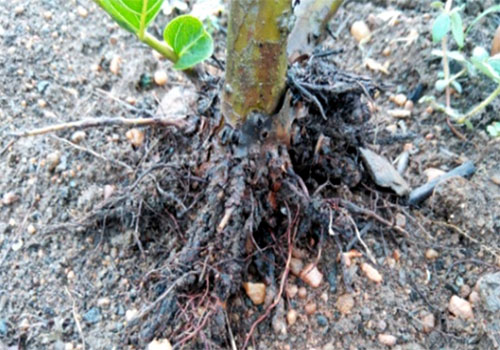 Root
knot nematode Meloidogyne spp. affected guava
Root
knot nematode Meloidogyne spp. affected guava
Integrated Nematode Management in Guava
1. Sanitation : Use of nematode free saplings for planting, Removal and destruction of nematode infected saplings or trees. Maintaining the orchard free from weeds and alternate hosts
2. Nematode management in nurseries
Treatment of soil mixture used for raising guava rootstocks. A ton of soil mixture has to be mixed with 50 -100kg of neem cake or pongamia cake enriched with the bio-pesticides such as Paecilomyces lilacinus, Pseudomonas fluorescens and Trichoderma harzianum. 5 kg of Carbofuran / phorate can also be added to one ton of soil mixture.
3. Nematode management in orchards
Apply 3 – 4 kg of bio-pesticide enriched
vermicompost/ Farm Yard Manure/ compost per plant once at an
interval of 3-4 months. Mix 20 kg of
bio-pesticide enriched neem cake / pongamia cake in 200 lit
water, leave it for two days. This can be used for drenching at
2 – 3 lit/ plant or filter it thoroughly and use it for sending
along the drip, once in an interval of 15 – 20 days.
- T



